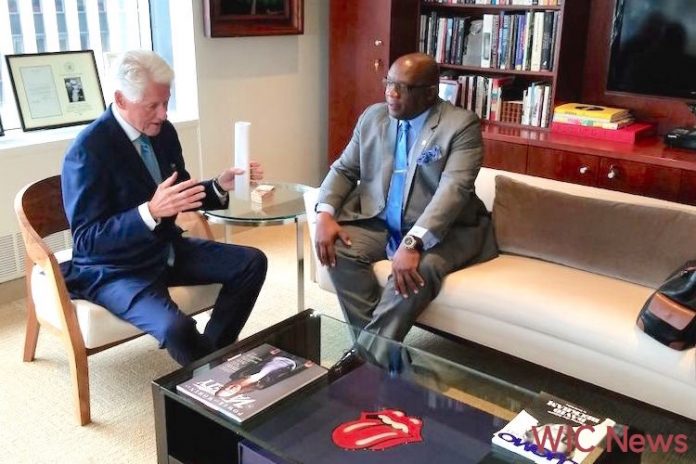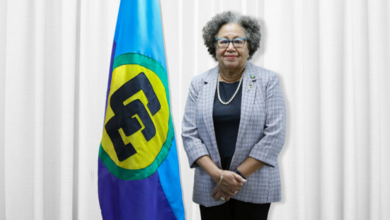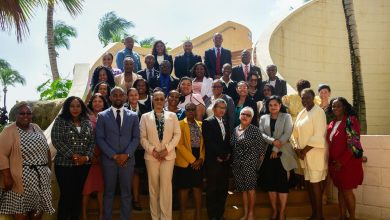he prime minister of St Kitts and Nevis had the ear of former US President Bill Clinton yesterday at a Clinton Global Initiative event in New York City.
Timothy Harris was there in his capacity as CARICOM’s lead head on human resources, health and HIV/AIDS, holding discussions aimed at promoting and safeguarding the sexual and reproductive health of women, adolescent girls and children in the Caribbean.
Among the others in attendance were Juliet Holness, wife of Jamaica PM Andrew Holness, Natalia Kanem, acting executive director of the UN Population Fund, and Sandra Granger, first lady of Guyana.
Addressing the gathering, Harris said: “The evidence, as you shall see, is a stark reminder of the challenges we face.”
“35% of women in Latin America and the Caribbean encounter sexual violence; cervical cancer accounts for 13% of all cancers and 10% of all deaths among Caribbean women; 19% of young women become pregnant before they reach 18 years old, and a considerable number of adolescent girls are giving birth before the age of 15 years old.”
But despite the “gloomy” situation, “all is not lost”.
“There is hope – hope that the region could be the first to eliminate mother-to-child transmission of HIV and congenital syphilis,” Harris added.
“Cuba has been the first country in the world to be so certified by the World Health Organization.
“As many as eight CARICOM countries are in close range of being certified, with St. Kitts and Nevis earmarked as the first OECS member state to achieve this major milestone later this year.”
Close ties with Clinton charity
After Harris, the two first ladies of Jamaica and Guyana spoke at the meeting, which was moderated by Katja Iversen, president and CEO of Women Deliver.
The Caribbean has a long association with the Clinton’s philanthropic endeavours.
In August 2002, CARICOM signed a memorandum of understanding with the William J Clinton Presidential Foundation – now know as the Clinton Foundation – for support in the region’s efforts to fight HIV/AIDS.
A campaign by the Pan Caribbean Partnership Against HIV and AIDS was backed by Clinton’s foundation in 2004, which ultimately led to the lowering the price of antiretroviral drugs, and later access to pioneering generic drugs.
Last September, speaking at a Clinton Global Initiative session on combating teen pregnancy, cervical cancer and HIV in Caribbean females, Harris acknowledged the Clinton Foundation for playing “a significant role in accelerating the AIDS response in the Caribbean.”






